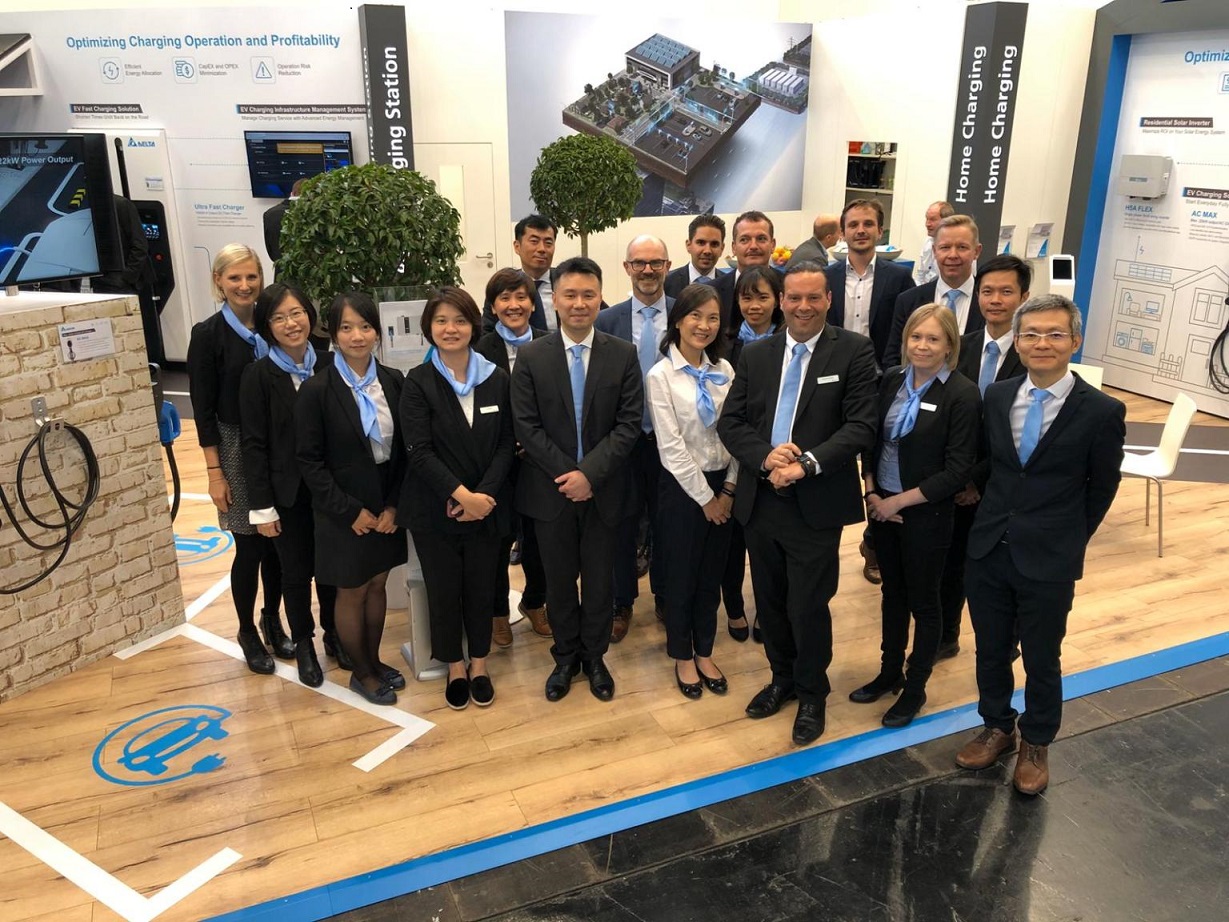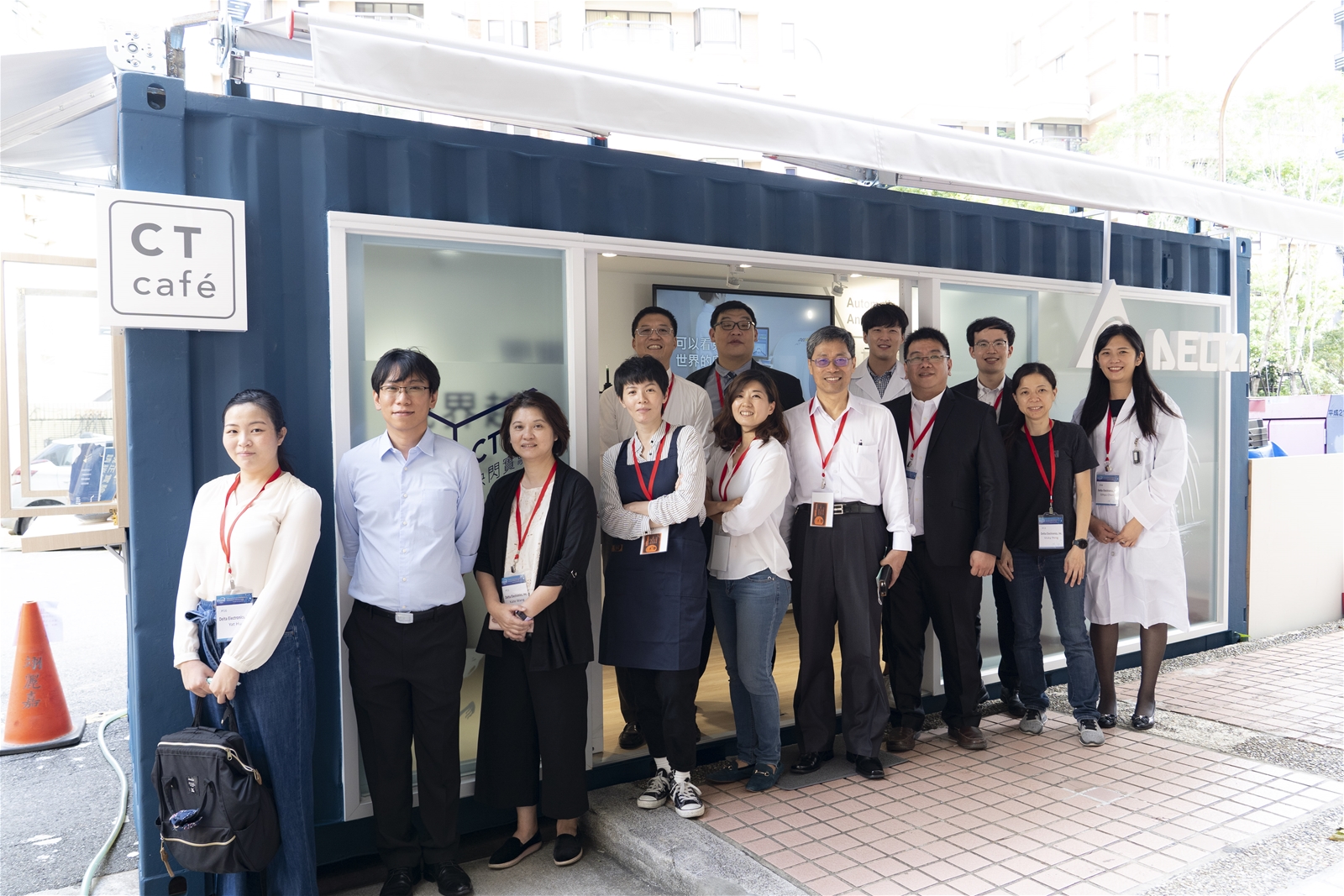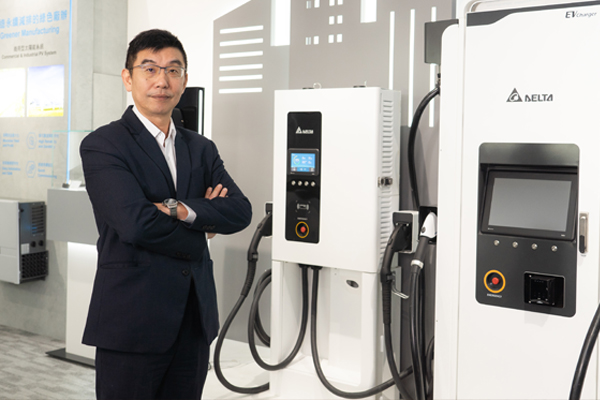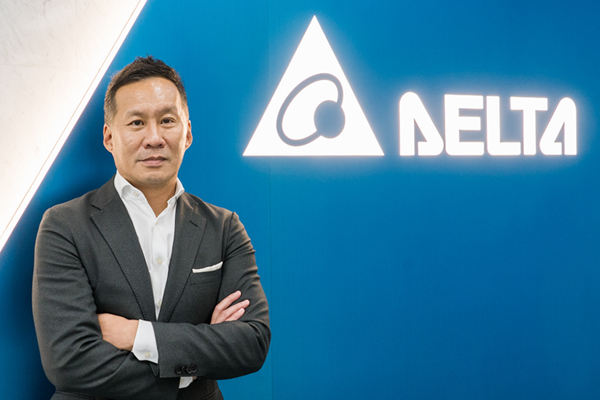Delta’s Energy Infrastructure & Industrial Solutions Business Group (EISBG) covers a wide range of products and solutions, including energy storage systems, renewable energy, electric vehicle charging solutions, and energy IoT. The Strategic Planning & Marketing Department under EISBG was established in 2019; this year is the third year after its official establishment. The team actively assists in the whole business group in strategic planning, planning & execution of product launches, and external communication activities. For Profile Feature of this issue, we invited Kate Wang, Manager Strategic Planning & Marketing Department (EISBG), to talk about EISBG’s marketing strategies and brand promotion, as well as her experience and thoughts over the last 10 years of working at Delta.
Thorough implementation of strategies with diverse and flexibly-managed team
EISBG marketing team consists of a group of energetic members. Kate manages the team without imposing too many restrictions so that the team members can have more room for development and play up to their full potential. Kate said: “Each member has his/her own specializations and responsibilities. I don’t actively delegate tasks after confirming the goals of a project; instead, the members will automatically divide themselves into different groups to finish the project, and this team chemistry is rarely seen elsewhere.”
EISBG strategic planning & marketing team
The team works in strategic planning, market intelligence, marketing communication, press relations, digital marketing, graphic and multimedia design, and industrial design. The marketing team works with EISBG business units according to their needs and product launch plans. The collaboration and hard work over the last two years have helped Delta gain much visibility in the energy industry.
Combing marketing strategies and business goals to gain brand visibility
Kate considers marketing to be dependent on business development plans. When devising marketing strategies, there must be a deep understanding of the directions of the strategies as well as business goals so that meaningful marketing plans can be devised and activities can be planned. EISBG devises marketing strategies from the customer’s perspective. It communicates the notion of “highly efficient energy generation” with solutions for energy infrastructure, while taking into account the selling points of different products and systems. Take electric vehicle charging solutions for example.
(R6) Delta EISBG GM JJ Chang and CT Café team members
Apart from introducing charging stations and charging management, EISBG also includes elements such as renewable energy, energy storage, and energy management to create electric vehicle charging solutions unique to Delta. In several major expositions in Europe and Asia in 2019, EISBG exhibited its solutions in this manner. As to the marketing of commercial energy storage systems, EISBG introduces the multi-applications of energy storage, in combination with the integration of solar energy, electric vehicle charging solutions, and energy management, demonstrating Delta’s expertise in providing energy infrastructure solutions.
The EISBG marketing team also makes use of Delta’s internal resources and platforms to increase the depth and breadth of brand and product communication through cross-department collaboration from different angles. Kate added: “Marketing activities must be conducted in parallel with sales strategies.
When discussing marketing plans, I always ask these questions: ‘whom are we selling the products to and who is helping us sell the products.’ One of the goals is to explore the possibilities of cross-business platforms.” Last year, during the online forum aiming at large energy consumers in Taiwan, EISBG worked with CISBU’s business unit in Taiwan to attract customers. This April, EISBG is set to participate in Delta’s Smart Manufacturing Miracle 2021 and promote Delta’s automation test systems and energy recycling system through the IABG platform.
Recently, the EISBG marketing team has been working with the Information Department and the Electric Vehicle Team to strengthen Delta’s skills in manufacturing electric vehicles and its reputation in the electric vehicle supply chain. “We really appreciate our colleagues’ support, which allows ESIBG to give full scope to its role in marketing and communication with the backing of the Delta brand,” said Kate.
Localized marketing strategies formulated by “central kitchen”
It is not easy to create an international brand. Brand communication is affected by language, culture, and local market conditions. Kate defined BG as a global “Central Kitchen,” responsible for producing globally standardized materials for promoting consistent brand and product values. It also clearly determines the concepts of products/solutions, as well as the methods of promotion. Then, the results will be handed over to frontline sales agents and marketers for localization so that they can make adjustments suitable for the local environment
to gain brand visibility. Kate further added: “If we want to combine our work more thoroughly, we must formulate more comprehensive Go-to-market (GTM) strategies, which take into account aspects including products, businesses, manufacturing, services, and marketing. ” In addition to serving as a central kitchen, the marketing team needs to work with frontline marketing teams to launch promotional campaigns at local exhibitions and events. “Whenever we are informed of the timeline for the mass production of a product, the salespeople from BU will discuss with the frontline salespeople and us about the timeline for starting our work. We will use this information to pick the most indicative annual exhibitions or events in collaboration with our frontline sales teams and make plans in advance together with local marketing and sales teams. For example, EVCSBU launched several products primarily oriented at the European market at eMove360° Europe in 2019.” Kate said that regional collaboration often starts four to six months in advance to ensure that the communication for products/solutions can be smooth and without obstacles.

Collaboration with EMEA EVCS and marketing team at eMove360°.
Focus first on ideas before execution
Kate, working for almost 10 years at Delta, has undertaken positions at various units, including MCISBU, NBD MO, and ESESU. From electricity to energy, she has gained experience in different fields. Apart from marketing, she once acted as NBD coach and worked in sales development. She said: “When I was a NBD coach eight years ago, I realized that energy transition would be an irreversible trend. I also developed strong relationships with a few NBDs I supervised, who later on became members of EISBG. Thus, one year after EISBG was established, I requested to be assigned to BG so that I could work with them and create a new energy future.”
Kate shared with us that she had recently come to a new realization about work when practicing Qigong (a traditional exercise involving slow body movements). Qigong puts emphasis on Qi (energy) and Yi (thoughts) instead of forms (movements), and it is said that “when Qi and Yi are good, the movements will naturally fall into place.” People expect marketing to be creative, so marketers often first focus on the execution of their creativity without considering business objectives. She applied this concept to marketing: “Don’t rush into executing ideas, but instead, think about motives and desired goals. And then you will be able to create something meaningful to the business.”



















